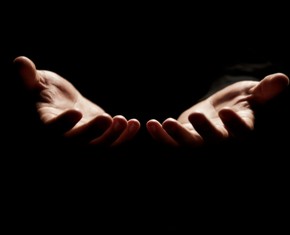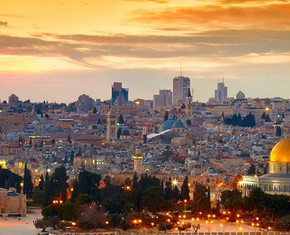The views expressed in our content reflect individual perspectives and do not represent the authoritative views of the Baha'i Faith.
…the fundamental reality of the divine religions must be renewed, reformed, revoiced to mankind. – Abdu’l-Baha, Foundations of World Unity, p. 84.
Can a religion be reformed? Once revealed, spread widely and established in different parts of the world, is it even possible to re-make a religious tradition in its original image, or in a different one?
A friend of mine called the other day and asked me that question. She wondered about Islam, and whether it could ever leave behind the bloody taint of violence that some radical Islamists have given it. She wondered aloud about it. “I don’t know if it can be reformed,” she said. “After all, the whole history of Islam has been pretty violent.”
“The history of most other religions, too,” I said. Once a religion turns to violence, it seems, the original teachings of love and kindness depart. And once a religion loses its original spiritual vitality, can it be regained or reformed? Or does each Faith, once compromised or corrupted, require complete renewal?
The historical narrative that goes along with many of the world’s major religions does seem to follow a fairly consistent, repetitive pattern of growth and decline. The Baha’i teachings describe it like this:
…the appearance of the Holy Manifestations is the spiritual springtime; it is the divine splendor; it is the heavenly bounty, the breeze of life, the rising of the Sun of Reality. Spirits are quickened; hearts are refreshed and invigorated; souls become good; existence is set in motion; human realities are gladdened, and grow and develop in good qualities and perfections. General progress is achieved and revival takes place, for it is the day of resurrection, the time of excitement and ferment, and the season of bliss, of joy and of intense rapture.
Afterward the life-giving spring ends in fruitful summer. The word of God is exalted, the Law of God is promulgated; all things reach perfection. The heavenly table is spread, the holy breezes perfume the East and the West, the teachings of God conquer the world, men become educated, praiseworthy results are produced, universal progress appears in the world of humanity, and the divine bounties surround all things. The Sun of Reality rises from the horizon of the Kingdom with the greatest power and heat. When it reaches the meridian, it will begin to decline and descend, and the spiritual summer will be followed by autumn, when growth and development are arrested. Breezes change into blighting winds, and the unwholesome season dissipates the beauty and freshness of the gardens, plains and bowers — that is to say, attraction and goodwill do not remain, divine qualities are changed, the radiance of hearts is dimmed, the spirituality of souls is altered, virtues are replaced by vices, and holiness and purity disappear. Only the name of the Religion of God remains, and the exoteric forms of the divine teachings. The foundations of the Religion of God are destroyed and annihilated, and nothing but forms and customs exist. Divisions appear, firmness is changed into instability, and spirits become dead; hearts languish, souls become inert, and winter arrives — that is to say, the coldness of ignorance envelops the world, and the darkness of human error prevails. – Abdu’l-Baha, Some Answered Questions, p. 74.
In this unique way of conceptualizing the whole history of religion, only a new revelation can renew an old one. After the winter, only the springtime can make the flowers bloom.
Baha’is believe that only a new messenger, a prophet of God, possesses the power and the inspiration to fully renew religion. In the past, some religious reform movements may have had a temporary positive impact; but they have also, over time, also created schism, disunity and even warfare between sects. The resulting disunity, which problematically plagues almost all of the world’s major revealed religions today, has made for hundreds and even thousands of competing denominations and factions. So rather than an inside effort to re-make existing religious institutions, the Baha’i teachings say that only a new messenger and a new message will truly renew the fundamental spiritual ideals of the past:
…the Law of God is divided into two parts. One is the fundamental basis which comprises all spiritual things — that is to say, it refers to the spiritual virtues and divine qualities; this does not change nor alter: it is the Holy of Holies, which is the essence of the Law of Adam, Noah, Abraham, Moses, Christ, Muhammad, the Bab, and Baha’u’llah, and which lasts and is established in all the prophetic cycles. It will never be abrogated, for it is spiritual and not material truth; it is faith, knowledge, certitude, justice, piety, righteousness, trustworthiness, love of God, benevolence, purity, detachment, humility, meekness, patience and constancy. It shows mercy to the poor, defends the oppressed, gives to the wretched and uplifts the fallen.
These divine qualities, these eternal commandments, will never be abolished; nay, they will last and remain established for ever and ever. These virtues of humanity will be renewed in each of the different cycles; for at the end of every cycle the spiritual Law of God — that is to say, the human virtues — disappears, and only the form subsists.
Thus among the Jews, at the end of the cycle of Moses, which coincides with the Christian manifestation, the Law of God disappeared, only a form without spirit remaining. The Holy of Holies departed from among them, but the outer court of Jerusalem — which is the expression used for the form of the religion — fell into the hands of the Gentiles. In the same way, the fundamental principles of the religion of Christ, which are the greatest virtues of humanity, have disappeared; and its form has remained in the hands of the clergy and the priests. Likewise, the foundation of the religion of Muhammad has disappeared, but its form remains in the hands of the official ulama.
These foundations of the Religion of God, which are spiritual and which are the virtues of humanity, cannot be abrogated; they are irremovable and eternal, and are renewed in the cycle of every Prophet. – Abdu’l-Baha, Some Answered Questions, p. 47.
That new prophet for this age—Baha’u’llah, the founder of the Baha’i Faith—has now renewed, reformed and revoiced the eternal verities of faith to all humanity.
















Comments
Sign in or create an account
Continue with Googleor